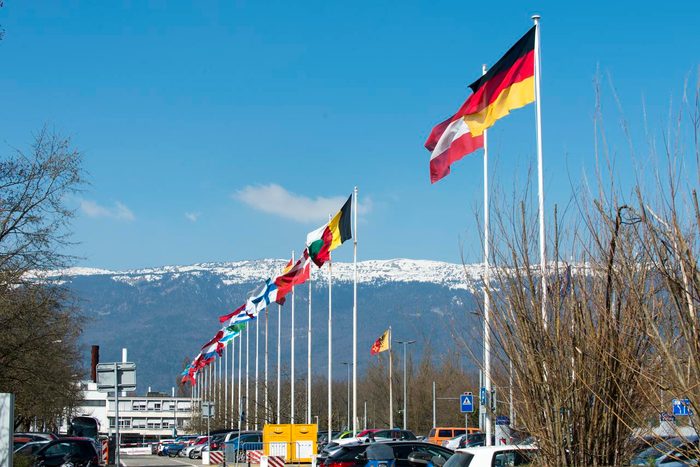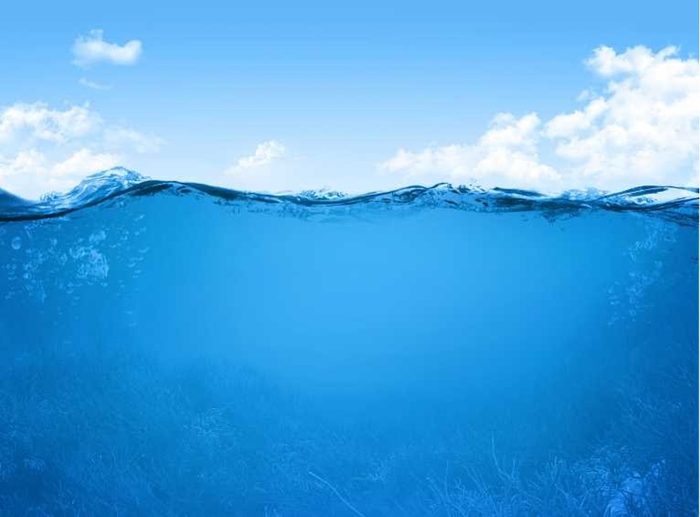Good morning, this is Zelda, and today we invited the executive director of the Diplomacy Forum at GESDA, Daria Robinson, to reflect on the relation between science and diplomacy.
We also spoke to think tank foraus about data governance issues surrounding Covid immunity certificates, which have been fuelling global debate. Plus, we follow the discussion about dark sky pollution that will take place at the UN this summer.
This is my last newsletter, as I will be focusing on new digital audiovisual content for Geneva Solutions starting next week. Thank you for your support and I look forward to sharing more with you soon! |
|
Sciences & Technology News
|
|

Pictures of the CERN Flags (Credit: 2014 CERN).
|
|
🛰️ Dark sky pollution to be discussed at UN this summer.
Since 2019, SpaceX has put into orbit several thousand telecommunication satellites. But since the first launches, many astronomical observations have been parasitized by the light reflected by these satellites... The International Astronomical Union has decided to bring the case to the UN.
Heidi.news (FR)
|
|
Here's what else is happening
|

Sepik Papuan girl Ambunti, East Sepik river, Papua New Guinea. Source: United Nations.
|
|
The world in faces.
This exhibition, originally designed and shown in 2019, honors Indigenous Peoples’ right to their cultures, identities and traditions, and their right to self-determination. Today, the faces of the world can be discovered online.
United Nations (EN)
|
|
|
Anticipatory reads by GESDA
|
|

©DR
|
|
Oceans are under the spotlights,
with the UN Decade of Ocean Science for Sustainable Development. One reason is that oceans suck CO2 from the air, leading to an acidification of waters, hence the loss of coral reefs amongst other bio-organisms.
Yet, one of the solutions to fight atmospheric CO2 increase and climate change might be... to inject even more CO2 in the oceans: not in the water itself, but in deep saline formations, so that the carbon dioxide gets stocked there.
As AXIOS nicely explains (see below), “saline formations are found around the world: basalt rock lines most of the oceanic crust and converts CO2 into new minerals – a chemical reaction researchers are investigating to store carbon. Unlike storing carbon dioxide in a reservoir from where it might one day leak, "this removes it from the carbon cycle entirely," says geoscientist Rachel Lauer of the University of Calgary.
Great idea, which is currently tested. But an idea that comes with the currently high price to first capture CO2 directly from the air. Besides, this idea “helps perpetuate a belief in technological salvation and diminishes the sense of urgency surrounding the need to curb emissions now”, as three scientists write in The Conversation, calling these efforts a “dangerous trap”.
They have a point. But, while making all efforts possible to reduce greenhouse gases emission remains crucial, such ideas should be fully studied: as AXIOS recalls, a major 2018 UN study found that pulling CO2 out of the atmosphere — not only cutting new emissions — will be an important tool for limiting global temperature rise.
- Olivier Dessibourg
|

This selection is proposed by the Geneva Science and Diplomacy Anticipator
GESDA, working on
anticipating cutting-edge science and technological advances to develop innovative and inclusive
solutions for the
benefit of the planet and its inhabitants.
|
|
GS news is a new media project covering the world of international cooperation and development. Don’t hesitate to forward our newsletter!
Have a good day!
|

|
|
Avenue du Bouchet 2
1209 Genève
Suisse
|
|
|
| |











